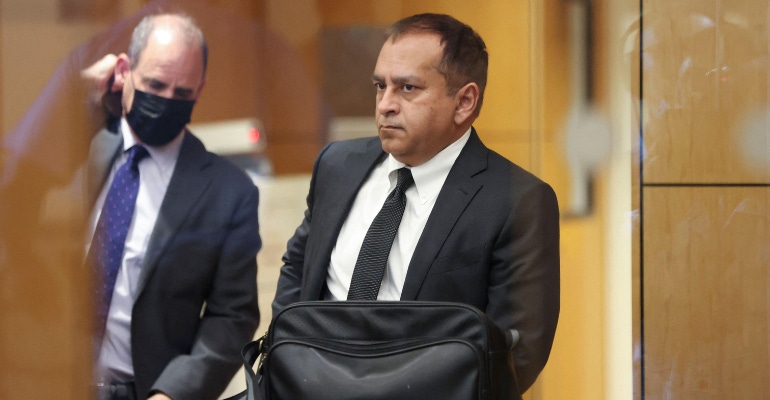Balwani Sentenced to Nearly 13 Years for Theranos Fraud
The former Theranos executive was sentenced to 12.9 years in prison plus three years of probation.
December 7, 2022

Ramesh "Sunny" Balwani has been sentenced to 12.9 years in prison and three years on probation for his role in the Theranos fraud.
The former Theranos executive is expected to surrender to prison on March 15. The amount of restitution he will have to pay will be determined in a separate hearing.
Balwani was convicted in July on 12 criminal fraud charges, a stark contrast to the four charges that his ex-lover Elizabeth Holmes was convicted of in January. Holmes was sentenced last month to 11.25 years in prison and three years of supervised release. Her surrender date is April 27, but Holmes has asked to stay out of prison pending an appeal of her conviction and sentence. She confirmed Monday night via a legal filing that she is pregnant with her second child. Legal experts say Holmes' appeal process could take years.
Prior to the sentencing hearing, Balwani filed more than 40 objections to the probation office's presentence investigation report, most of which U.S. District Judge Edward Davila considered "contextual" objections and only four were substantive, Law360 senior reporter Dorothy Atkins reported in a Tweet.
Highlights of the former Theranos COO's sentencing hearing
Balwani's lawyers argued that he shouldn't be on the hook for any investor loss, despite his conviction, because he left Theranos in 2016. That point seemed to shock Davila, Atkins reported in a Tweet.
Jeff Coopersmith of Orrick, one of Balwani's lawyers, said that Balwani is not a risk for recidivism (the tendency of a convicted criminal to reoffend), in part because no company will hire him. "He’s unfortunately radioactive as a result of this whole affair,” the lawyer said, according to a Tweet from Atkins.
Balwani's attorneys argued, like Holmes' counsel did, that the court should use the tougher "clear and convincing" standard of proof in proving investor loss, and not the more lenient "preponderance of evidence" standard the government suggested, Atkins Tweeted. However, Davila decided to apply the preponderance of evidence standard as he did in Holmes’ sentencing, according to a later Tweet from Atkins.
Balwani's counsel attacked the government's effort to include Rupert Murdoch as an investor victim to calculate loss. The lawyers noted that Murdoch invested $125 million into Theranos but the government never interviewed Murdoch, Atkins Tweeted. Prosecutors countered that case law doesn't require the government to call each and every Theranos investor who lost money to the stand to testify to their losses for the purposes of sentencing, according to a later Tweet from Atkins.
Davila found there are 12 investor victims for the purpose of calculating Balwani’s sentencing, including Rupert Murdoch. The judge declined to give Balwani a tougher sentence for leading the conspiracy, but he found Balwani recklessly put patients at risk because he led the lab, Atkins Tweeted.
The judge determined the total Theranos investor loss to be $120 million for Balwani's sentencing, Atkins Tweeted.
While Holmes received a "very harsh sentence," Balwani's counsel said that was likely due to the message it would send to Silicon Valley, but Balwani didn't seek the media attention the way she did, Atkins Tweeted.
While Holmes did make a statement to the court during her sentencing, Balwani did not, according to a Tweet from Atkins.
About the Author(s)
You May Also Like



.png?width=300&auto=webp&quality=80&disable=upscale)
